
The Charlatans were an American folk rock and psychedelic rock band that played a role in the development of the San Francisco Haight-Ashbury music scene during the 1960s. They are often cited by critics as being the first group to play in the style that became known as the San Francisco Sound.

Buffy Sainte-Marie, is an American singer-songwriter, musician, and social activist.
Psychedelic folk is a loosely defined form of psychedelia that originated in the 1960s. It retains the largely acoustic instrumentation of folk, but adds musical elements common to psychedelic music.
"Universal Soldier" is a song written by singer-songwriter Buffy Sainte-Marie. The first released recording was a single by The Highwaymen, released in September 1963. The song was also released on Sainte-Marie's debut album It's My Way!, released in April 1964. "Universal Soldier" was not an immediate popular hit at the time of its release, but it did garner attention within the contemporary folk music community. It became a hit a year later when Donovan covered it, as did Glen Campbell. Sainte-Marie said of the song: "I wrote 'Universal Soldier' in the basement of The Purple Onion coffee house in Toronto in the early sixties. It's about individual responsibility for war and how the old feudal thinking kills us all." The idea was based on that politicians, with power over the military, in democratic states are elected by the people.

Sixty Four is the 21st studio album and 26th album overall from Scottish singer-songwriter Donovan. It is composed of demo tracks recorded by Donovan in 1964. Sixty Four was released in the United States in February 2004 by Donovan Discs, his own record label.
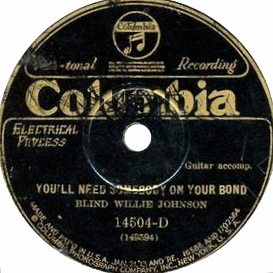
"You'll Need Somebody on Your Bond" is a gospel song that is attributed to both tradition and to gospel blues musician Blind Willie Johnson. Johnson first recorded the song in December 1930, although Delta blues musician Charley Patton recorded a similar "You're Gonna Need Somebody When You Die" in October 1929. Over the years, several other musicians have recorded renditions of the song.

Try for the Sun: The Journey of Donovan is the second CD boxed set from Scottish singer-songwriter Donovan. It was released on 13 September 2005.
"The Partisan" is an anti-fascist anthem about the French Resistance in World War II. The song was composed in 1943 by Russian-born Anna Marly (1917–2006), with lyrics by French Resistance leader Emmanuel d'Astier de La Vigerie (1900–1969), and originally titled "La Complainte du partisan". Marly performed it and other songs on the BBC's French service, through which she and her songs were an inspiration to the Resistance. A number of French artists have recorded and released versions of the song since, but it is better recognised globally in its significantly, both musically and in the meaning of its lyrics, different English adaptation by Hy Zaret (1907–2007), best known as the lyricist of "Unchained Melody".

It's My Way! is the first album by folk musician and songwriter Buffy Sainte-Marie. It was released in April 1964 through Vanguard Records. It was later released in Britain in early 1965 by Fontana Records. The album would become influential in the folk community. It is most famous for two widely covered folk standards, "Universal Soldier" and "Cod'ine", as well as "Now That the Buffalo's Gone", a lament about the continued confiscation of Indian lands, as evidenced by the building of the Kinzua Dam. The cover features a mouthbow, which was to be a trademark of her sound on her first three albums.
Michael Ray Wilhelm was an American guitarist, singer and songwriter, best known as a founding member of the influential Bay Area band the Charlatans, who have been widely credited as starting the Haight-Ashbury psychedelic scene during the 1960s. He later played with the bands Loose Gravel and the Flamin' Groovies.

"Who Do You Love?" is a song written by American rock and roll pioneer Bo Diddley. Recorded in 1956, it is one of his most popular and enduring works. The song represents one of Bo Diddley's strongest lyrical efforts and uses a combination of hoodoo-type imagery and boasting. It is an upbeat rocker, but the original did not use the signature Bo Diddley beat rhythm.
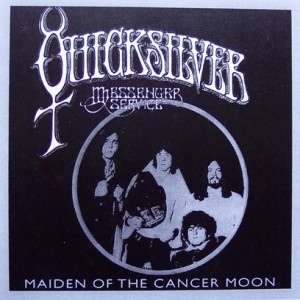
Maiden of the Cancer Moon is a live album by American psychedelic rock band Quicksilver Messenger Service.

Another Side of This Life: The Lost Recordings of Gram Parsons is a compilation released in 2000 of early recordings by Gram Parsons. It features all previously unreleased recordings. The singing style and musical arrangements are much different from Parsons's subsequent, more country-influenced music.

If I Were a Carpenter is an album by American singer Bobby Darin, released in 1966. It was a significant change in direction for Darin considering his previous album was a collection of show tunes.
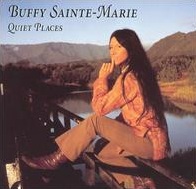
Quiet Places is Buffy Sainte-Marie's ninth album and her last for Vanguard Records, with whom she had had a very strained relationship ever since the financial disaster of the experimental Illuminations. In fact, her next album, Buffy, had already been recorded before Quiet Places was actually released and was not to find a label for many months after she had completely broken with Vanguard.
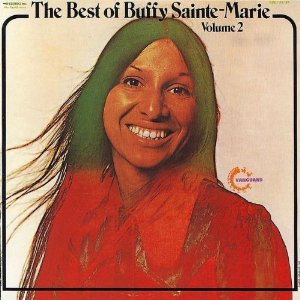
The Best of Buffy Sainte-Marie Vol. 2 is a compilation double album released by Vanguard Records in 1971 covering a large proportion of the material she had released on her first six albums for the label that was not found on the previous year's The Best of Buffy Sainte-Marie.

The Amazing Charlatans is a compilation album by the American psychedelic rock band the Charlatans that was released in 1996 by Big Beat Records. The album is a collection of demos, tracks that appeared on singles, and previously unreleased sessions that the band recorded between August 1965 and early 1968, at a variety of different San Francisco studios.
Codeine is an opiate substance.
"Now That the Buffalo's Gone" is the first song from the 1964 album It's My Way! by singer-songwriter Buffy Sainte-Marie. The song's title refers to the near-extinction of the American bison and serves as a metaphor for the cultural genocide inflicted by Europeans. A classic folk protest song, "Now That the Buffalo's Gone" has a simple arrangement with guitar and vocals by Sainte-Marie and bass played by Art Davis. The song is a lament that addresses the continuous confiscation of Indian lands. In the song, Sainte-Marie contrasts the treatment of post-war Germany, whose people were allowed to keep their land and their dignity, to that of North American Indians.
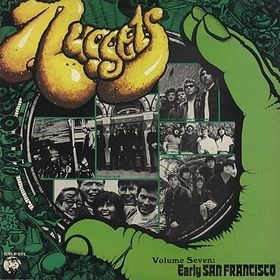
Nuggets, Volume 7: Early San Francisco is a compilation album featuring American psychedelic rock and folk rock musical artists from San Francisco, and their recordings prior to the Summer of Love. It is the seventh installment of the Nuggets series and was released on Rhino Records in 1985.














